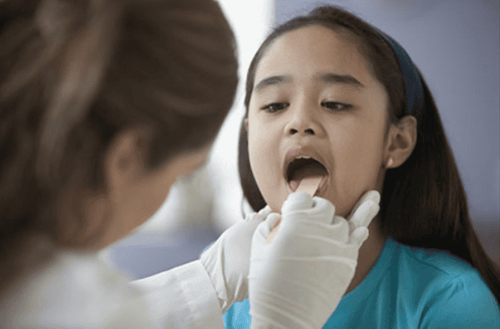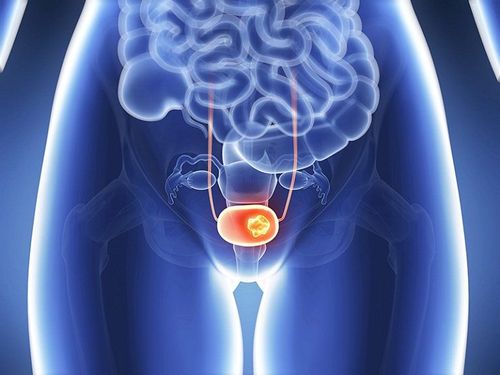This is an automatically translated article.
Nasopharyngeal cancer is on the rise in women. The disease is malignant and progresses rapidly. Therefore, people at high risk of diseases such as regularly eating salted foods, smoking, and drinking should be screened for oropharyngeal cancer early.
1. Risk of nasopharyngeal cancer
The cause of the disease is not clear. However, the risk factors can be identified as follows:
Fermented, salted foods: Foods that are fermented or processed by salting are foods that are high in nitrate and nitrite. . These substances react with proteins to form compounds called nitrosamines, which damage the DNA structure in cells at commonly exposed sites, including the throat. Users should change dishes regularly, focusing on foods rich in vitamins and minerals found in vegetables, tubers and fruits. Tobacco and alcoholic beverages: In cigarette smoke there are more than 70,000 chemicals, many of which are harmful chemicals that damage the genome of healthy cells, thereby giving rise to cancer. Long-term smokers (30 years or more) are three times more likely to develop nasopharyngeal cancer. Alcohol and other alcoholic beverages also increase the risk of the disease. Ear, nose and throat diseases: People who often have untreated ENT diseases have a higher risk of developing nasopharyngeal cancer. Epstein-Barr virus (EBV): Most of the EBV that enters the body is inactivated by the immune system. However, they can also change the gene structure that makes healthy cells turn into cancerous cells. Certain toxic chemicals: Long-term exposure to wood dust and formaldehyde can increase the risk of throat cancer. Formaldehyde is found in household items such as wall paint, door paint, glue, industrial plywood.

Trong khói thuốc lá có nhiều hóa chất độc hại làm tổn thương hệ gen của tế bào lành, từ đó làm phát sinh ung thư
2. Early signs of cancer
In general, nasopharyngeal cancer has a number of early signs that are less concerned by patients such as:
Difficulty swallowing: A woman's sudden unexplained difficulty swallowing may be an early sign of real cancer. esophageal or nasopharyngeal cancer, even lung cancer. Swollen lymph nodes in the neck: An abnormally swollen lymph node in the neck is a sign of an abnormality because the lymph node becomes prominent only when there is damage around it. So raised lymph nodes are also considered an early sign of nasopharyngeal cancer Weakness, prolonged fatigue: Fatigue or weak resistance is a common symptom of many cancers. Therefore, if you feel tired for no apparent reason, you should see a doctor soon.
3. Symptoms of nasopharyngeal cancer

Ù tai, nghe kém, đau tai có thể là triệu chứng của ung thư vòm họng
Common symptoms in nasopharyngeal cancer include:
Tinnitus, hearing loss, ear pain, ear discharge, recurrent otitis media. Stuffy nose, bloody nose, nosebleed. Sore throat, coughing up mucus and blood. Blurred vision, double vision. Persistent headache, facial numbness. Difficulty speaking, hoarse voice. Unusual lymphadenopathy in the neck area. The above symptoms often make the patient think of a milder illness, making it easy for the patient to be subjective and not go to the doctor. Therefore, when you have any of the above-mentioned symptoms, you need to see a doctor soon to rule out nasopharyngeal cancer.
4. Diagnosis of nasopharyngeal cancer
Today, relying on imaging tools, it is easier to diagnose nasopharyngeal cancer. In addition to the examination to detect the above symptoms, otolaryngoscopy is the most important and decisive method. Ulcerative lesions, submucosal infiltrates are easily identified through endoscopic images. If disease is still suspected, the next indication is a cell biopsy. Small tissue removed from the tumor will be taken for histopathological analysis to determine the exact presence of cancer cells.
To diagnose the stage of the disease, local spread or distant metastases, the doctor may order imaging tests such as ultrasound, computed tomography, magnetic resonance imaging, imaging. Whole body PET CT. If cervical lymph node metastasis is suspected, the patient will be aspirated to remove cells from the suspected lymph node to perform histopathology to look for cancer cells.
Quantitative testing of EBV plasma levels to determine the risk of EBV attacking healthy cells. The higher the EBV concentration, the higher the patient's risk of developing nasopharyngeal cancer. This test is very valuable in screening, disease orientation as well as disease prognosis.
5. Treatments
5.1 Radiation Therapy is the use of X-rays directed at the tumor area to kill cancer cells and prevent them from growing, this is the most important basic means in the treatment of nasopharyngeal cancer today. Radiation therapy can cause many complications such as scleroderma, burns of the skin and soft tissue in the irradiated area, restricting movement of the bite or neck muscles; dry mouth due to damage to the salivary glands; ulcers of the oropharyngeal mucosa; reduced vision loss; effects on hearing... Today, with the advent of dose-modulated radiation therapy (IMRT) and imaging equipment, it helps to accurately locate tumors, calculate radiation doses, and direct radiation to tumor, minimizing damage to healthy cells.
5.2 Chemotherapy Chemotherapy is often used in cases of advanced cancer with distant metastases. However, in recent times, chemotherapy is used even for early nasopharyngeal cancer, combined with radiation therapy to increase the effectiveness of radiation therapy.
5.3 Surgery With early stage nasopharyngeal cancer that has not metastasized, surgery can be used to remove the tumor before chemotherapy and radiotherapy.
5.4 Target cell therapy Apply molecular and immunological biotechnology to deliver drugs directly to individual cancer cells to kill cancer cells. This method helps to kill cancer cells more effectively and with less side effects than radiation and chemotherapy.
6. Prevention of nasopharyngeal cancer

Chế độ ăn nhiều rau củ quả sẽ giúp phòng bệnh ung thư vòm họng
Nasopharyngeal cancer can be completely prevented by the following simple ways:
Reasonable diet: A diet rich in fruits and vegetables, limiting the intake of salted, fermented foods, burnt baked goods, and junk food. Eat a lot of grease Regular exercise and sports Get full vaccinations, especially flu vaccines Daily hygiene of the nose and throat to prevent common ear, nose and throat diseases Periodic health check-ups to screen for cancer. Nasopharyngeal cancer, if diagnosed early and treated promptly, can still be completely cured. Therefore, when there are suspicious symptoms, it is necessary to go to the doctor early to detect the disease.
The package of screening, and early detection of oropharyngeal, hypopharyngeal and laryngeal cancer has been put into use at Vinmec International General Hospital branches to meet the cancer screening needs of customers. The health examination package has all the necessary services capable of detecting other abnormalities in the nasopharynx.
The hospital is fully equipped with necessary equipment for oropharyngeal cancer screening such as Endoscopy, CT scan, PET-CT scan, MRI, histopathological diagnosis, gene-cell testing combined with a team of highly qualified and experienced doctors.
Oropharyngeal cancer screening package is applied to customers over 30 years old, at high risk of disease such as a family history of nasopharyngeal cancer; regularly smoke, drink alcohol; appeared symptoms of headache, tinnitus, nasal congestion, nosebleeds. When registering for the package, customers will be screened for nasopharyngeal - hypopharyngeal - laryngeal cancer through an ENT examination with hard or soft endoscope and software ultrasound.
Please dial HOTLINE for more information or register for an appointment HERE. Download MyVinmec app to make appointments faster and to manage your bookings easily.













